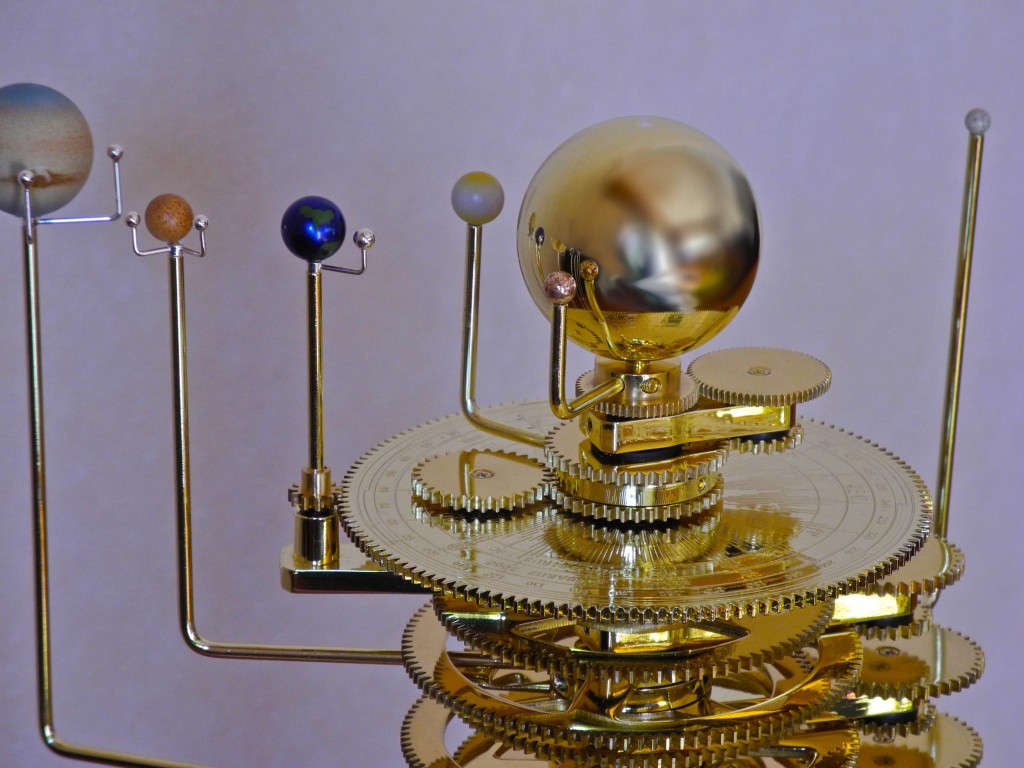 The latest alien planets hit the news like fireworks, I write about them a lot, and I’ve always found them boring. I’d been convinced early on by an eminent astronomer who said flatly that finding extra-solar planets wasn’t, as he said, interesting. In the first place, observations were nearly impossible and decades of claims turned out to be mistaken. In the second, stars could have planets, obviously, ours did; exoplanets were neither a surprise nor a clue to how the universe worked. In the mid-1980’s, a dedicated planet hunter told his interviewer he was too embarrassed to admit he looked for exoplanets so he kept it secret and fudged proposals for telescope time by saying he was looking for failed stars. So in the past months, the excitable press releases and news stories about this and that new planet? I say, pish. Turns out I’m wrong.
The latest alien planets hit the news like fireworks, I write about them a lot, and I’ve always found them boring. I’d been convinced early on by an eminent astronomer who said flatly that finding extra-solar planets wasn’t, as he said, interesting. In the first place, observations were nearly impossible and decades of claims turned out to be mistaken. In the second, stars could have planets, obviously, ours did; exoplanets were neither a surprise nor a clue to how the universe worked. In the mid-1980’s, a dedicated planet hunter told his interviewer he was too embarrassed to admit he looked for exoplanets so he kept it secret and fudged proposals for telescope time by saying he was looking for failed stars. So in the past months, the excitable press releases and news stories about this and that new planet? I say, pish. Turns out I’m wrong.
The news comes mostly from one satellite called Kepler, which looked through 156,453 stars and found 1,235 things that looked like planets. If you’re more convinced by large numbers than small — and you should be — and even if most of them turn out not to be planets, then Kepler is pretty convincing. Kepler is interesting too, but less because it’s finding other earths that have life and that we can go and visit: it hasn’t and we can’t. And besides, we already know planets can have life. Kepler’s planets are interesting because they’re some of the first real evidence for how planets form and what solar systems look like.
Before anybody had real data, the leading theory for planet formation hadn’t strayed too far out of the 18th century. And theorists thought solar systems would probably, to first order, look like ours: a nice orderly star orbited at a discrete distance by smallish rocky planets and farther out, by big fluffy planets, all going the same direction and aligned in the same flat plane. These new planetary systems — not all of them via Kepler — look like all hell.
One planet’s orbit isn’t in the equatorial plane; another planet is going the wrong way; an earth-sized planet is so close to its star that its orbit is less than a day; other planets are too big and too far away; and the most recent system has too many planets packed into orbits that are too close together and too fast — except for one odd planet, they orbit their star in less than two months. Astronomers evermore love the weird so they’re happy as can be, emitting superlatives to every interviewer.
Theorists have their work cut out for them, trying to make sense of these rogue solar systems. Meanwhile, the observations are laid out tidily – in a way, I like this best – in a website called The Extrasolar Planets Encyclopaedia, whose title sounds as likely as The Book of Flying Jellyfish. It’s online and interactive.
Credits:
photo of Saturn: NASA; pretty orrery: raneko; wonkety solar system: SteamPunK
When I was growing up, science textbooks always depicted the path of protons and electrons around an atom to be very much like the orbits of planets around our sun.
Later, I learned that real atomic particles do not follow straight paths, but often take quantum leaps, and they’re accompanied by a host of other strange little objects, both real and theoretical, such as quarks, leptons and bosons.
Maybe our understanding of astronomy is just a few steps behind our knowledge and theory of atomic science?
That said, Kepler’s many discoveries don’t surprise me at all. Instead, they simply increase my sense of wonder and awe with the universe.
That’s the Bohr model of the atom you’re talking about, Dan, and I think it’s still considered sort-of not-wrong. I’ll bet planets don’t jump quantumly, but like you, I’m not surprised about the odd things they DO do.
Yes. Exoplanets have gone from exotic to humdrum in record time. But observations are converging on the search for “earthlike” examples. When we find one that also has free oxygen lines in its emissions… now that will make headlines.
I hope I wasn’t unclear: exoplanets used to be humdrum scientifically, no surprise, no new information. But that was because, as you said, they were rare and exotic statistically and not until they began to be found in numbers did they become interesting. I personally think these weirdo solar systems are more interesting than a planet with oxygen lines, but I agree, that planet would make headlines. We’re such a solipsistic little species, aren’t we.
Just wait, then, until we see oxygen lines from an weirdo system! Win-win for everyone!
I fully recognise your point, that these planets are interesting because of what they might teach us, rather than that they might be harbouring ET. But a lot of idiots, some of them highly financed, are more interested in ET. So here’s my question to them.
Kepler -10b, the nearest candidate so far, seems to be about 560 light years away. Let’s pretend that it’s Earthlike (which it isn’t) and formed about the same time as us (who knows). It’s reasonable to assume, then, that evolution would have progressed at roughly the same rate, if not in the same direction. If so, what we see of them, and they of us, would be rooted in the late Middle Ages.
That’s a best-case scenario. So why are these clowns wasting their time hunting for medieval alien TV channels?
I only ask because I enjoy spinning off into absurd realms of fantasy every so often, especially at this time of night.
The next blog post I’d write would be on medieval alien TV if you hadn’t said it all already.
What do you mean ‘all’? I’ve only scratched the surface. There’s a whole box set in this. I’ll tweet the idea to Sky Atlantic tomorrow.
I can’t tell you how fast I’d buy that boxed set — I’d buy it in a New York minute. Speaking of country-specific phrases, what’s Sky Atlantic?
We’re kind of swerving off the point here, Ann, but Sky Atlantic is British Sky Broadcasting’s (BsB, shortly to be wholly owned by Murdoch) new subscription channel. It’s bought up, amongst others, the entire output of HBO, which means I now get to pay for reruns of Sex and the City and The Wire instead of seeing them for free. Oh joy!
Yes but — to return to the point — will Sky Atlantic fall all over themselves for medieval alien TV? I suspect it’s possible.
This is getting silly. Maybe I’ll write a treatment and stick it on my blog. Will take a couple of NY decades though.